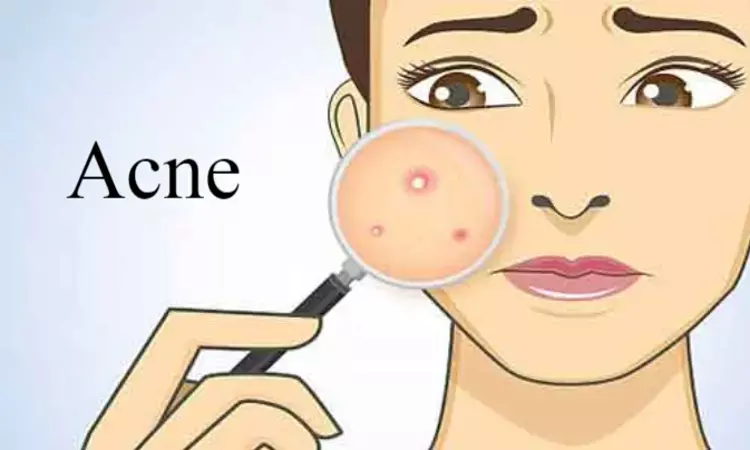- Home
- Medical news & Guidelines
- Anesthesiology
- Cardiology and CTVS
- Critical Care
- Dentistry
- Dermatology
- Diabetes and Endocrinology
- ENT
- Gastroenterology
- Medicine
- Nephrology
- Neurology
- Obstretics-Gynaecology
- Oncology
- Ophthalmology
- Orthopaedics
- Pediatrics-Neonatology
- Psychiatry
- Pulmonology
- Radiology
- Surgery
- Urology
- Laboratory Medicine
- Diet
- Nursing
- Paramedical
- Physiotherapy
- Health news
- Fact Check
- Bone Health Fact Check
- Brain Health Fact Check
- Cancer Related Fact Check
- Child Care Fact Check
- Dental and oral health fact check
- Diabetes and metabolic health fact check
- Diet and Nutrition Fact Check
- Eye and ENT Care Fact Check
- Fitness fact check
- Gut health fact check
- Heart health fact check
- Kidney health fact check
- Medical education fact check
- Men's health fact check
- Respiratory fact check
- Skin and hair care fact check
- Vaccine and Immunization fact check
- Women's health fact check
- AYUSH
- State News
- Andaman and Nicobar Islands
- Andhra Pradesh
- Arunachal Pradesh
- Assam
- Bihar
- Chandigarh
- Chattisgarh
- Dadra and Nagar Haveli
- Daman and Diu
- Delhi
- Goa
- Gujarat
- Haryana
- Himachal Pradesh
- Jammu & Kashmir
- Jharkhand
- Karnataka
- Kerala
- Ladakh
- Lakshadweep
- Madhya Pradesh
- Maharashtra
- Manipur
- Meghalaya
- Mizoram
- Nagaland
- Odisha
- Puducherry
- Punjab
- Rajasthan
- Sikkim
- Tamil Nadu
- Telangana
- Tripura
- Uttar Pradesh
- Uttrakhand
- West Bengal
- Medical Education
- Industry
Study urges clinicians to reconsider isotretinoin in Acne treatment

Isotretinoin belongs to a class of drugs known as retinoids and is used to treat severe cystic acne that has not responded to other treatment.
UCR Researchers have suggested that highly effective acne medication isotretinoin should be made more readily available despite reports of its association with depression and teen suicide. The study authors are of the opinion that severe acne itself, when left untreated, poses a serious risk for depression and anxiety. The study has been published in the Journal of the American Academy of Dermatology.
Isotretinoin has been linked to depression and suicide. But UCR researcher Misaki Natsuaki, one of the study's authors, said severe acne itself, when left untreated, poses a serious risk for depression and anxiety.
Natsuaki's research team conducted the first meta-analysis, analyzing 42 studies involving more than one million people, to resolve sometimes-conflicting data related to studies of how acne is related to depression and anxiety. The studies showed a significant association with acne and mental health.
"Acne may not cause physical pain or impairment, but you do not want to leave acne untreated because that's a risk for mental health," said Natsuaki, an associate professor of psychology and director of the UCR Developmental Transitions Laboratory. "Undertreatment of the acne itself is related to depression and anxiety, especially in females."
Isotretinoin, often referred to by the since-discontinued brand name Accutane, is an effective acne medication that hit the market in 1982. It can reduce the new acne after a standard six months treatment by reducing the size of oil glands and the amount of oil they produce, and making pores less hospitable to the Propionibacterium acnes bacteria. In up to 90% of cases, all or nearly all of the acne is eliminated. Its brand names include Absorica, Claravis, Amnesteem, Myorisan, and Zenatane.
But in 1998, the Food and Drug Administration issued a warning to doctors regarding a possible association with depression, psychosis, suicidal ideation, and suicide. One estimate - not based on a study - attributed 10 suicides in 2019 to isotretinoin.
The anti-Accutane phenomena, and regulatory action, grew 20 years ago after a congressman attributed his son's suicide to the medication. A subsequent suit was dismissed years later. In 2006, the FDA created the iPledge monitoring program, a risk management system specifically for Isotretinoin. With the goal of enforcing control over prescribing, dispensing, and using isotretinoin, the program requires all prescribers, pharmacists, and patients to register and log detailed information into the site.
Natsuaki's meta-analysis found both depression and anxiety heightened in acne sufferers at an effect size similar to the ill effect of cyberbullying on victim's depression, anxiety, and loneliness. Contrary to expectations, the researchers found that acne is associated with greater anxiety and depression among adults than adolescents.
"We speculate that, although no one likes to have acne on his or her face, the prevalence of acne is high in adolescent years and it's somewhat expected to happen in teens," Natsuaki said. "However, for adults, acne may appear as a deviation from social norm."
The study also found the emotional cost of acne is higher in Middle Eastern regions, though that may have been impacted by the inclusion of a disproportionately high number of studies from countries including Turkey, Iran, and Egypt.
The study concludes: "Given the psychiatric risk of acne itself, it is important for
which may include utilization of isotretinoin."
For more details click on the link: http://dx.doi.org/10.1016/j.jaad.2020.02.040
Hina Zahid Joined Medical Dialogue in 2017 with a passion to work as a Reporter. She coordinates with various national and international journals and association and covers all the stories related to Medical guidelines, Medical Journals, rare medical surgeries as well as all the updates in the medical field. Email: editorial@medicaldialogues.in. Contact no. 011-43720751
Dr Kamal Kant Kohli-MBBS, DTCD- a chest specialist with more than 30 years of practice and a flair for writing clinical articles, Dr Kamal Kant Kohli joined Medical Dialogues as a Chief Editor of Medical News. Besides writing articles, as an editor, he proofreads and verifies all the medical content published on Medical Dialogues including those coming from journals, studies,medical conferences,guidelines etc. Email: drkohli@medicaldialogues.in. Contact no. 011-43720751


